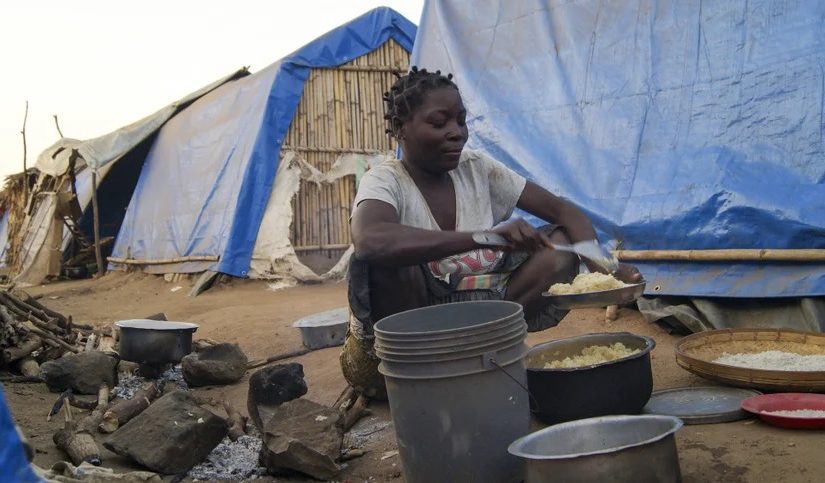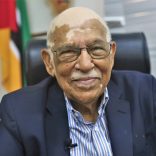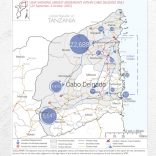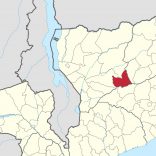Mozambique: Vaccine rejection threatens polio immunization of 680,000 children, Gaza Governor warns
Mozambique: Agencies helping displaced ‘only have half funding requested’ – UN

FILE PHOTO - For illustration purposes only. [Fie photo: Lusa]
Humanitarian agencies that are helping the people affected by armed attacks in northern Mozambique have received barely half of the funding they have requested to meet the needs in the region, the office of the United Nations High Commissioner for Refugees (UNHCR) said on Wednesday.
“Of the $254 million [€218 million] requested, only 55 five percent has been received, creating a gap of $114 million,” reads a statement released ahead of World Food Day on Saturday.
The situation has forced other agencies such as the World Food Programme (WFP) to cut its food aid distribution in order to ensure that it hs stockpiles for longer.
“Food insecurity continues to plague people around the world, including millions in Mozambique alone” in a situation that has been exacerbated by “conflicts, economic and climate shocks, limited capacity in developing countries and the Covid-19 pandemic,” the UNHCR said, adding that “urgent action is required to ensure that the basic food and nutrition needs of people forced to flee are met.”
Cabo Delgado province is rich in natural gas but has since 2017 been plagued by armed rebels, with responsibility for some attacks claimed by the local affiliate of the extremist group Islamic State.
The conflict has led to more than 3,100 deaths, according to the ACLED conflict registration project, and displaced more than 817,000 people, according to Mozambique authorities.
Since July, an offensive by government troops with the support of Rwanda that was later joined by the Southern African Development Community (SADC) has improved the security situation, with several areas once held by rebels now retaken, including the town of Mocímboa da Praia, which had been occupied by rebels since August 2020.
In addition to the displacement of people in the north, Mozambique has 28,597 refugees and asylum seekers, with 9,500 in the Maratane settlement in Nampula, with the government has providing “fundamental support”, according to the UNHCR.
In addition to other aid, the authorities in 2019 made a total of 2,000 hectares available “for the practice of subsistence [farming and livestock] activities in Maratane,” said Samuel Chakwera, the UNHCR’s representative in Mozambique, adding that setting up displaced people “in agriculture and livestock activities is one of the most sustainable ways to make them achieve self-sufficiency.”












Leave a Reply
Be the First to Comment!
You must be logged in to post a comment.
You must be logged in to post a comment.